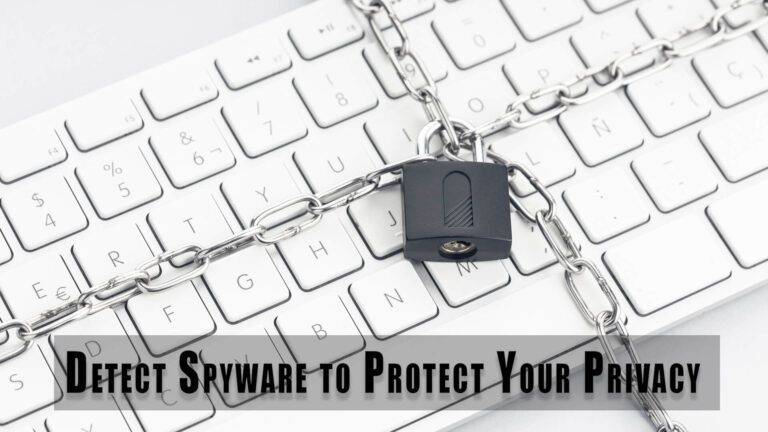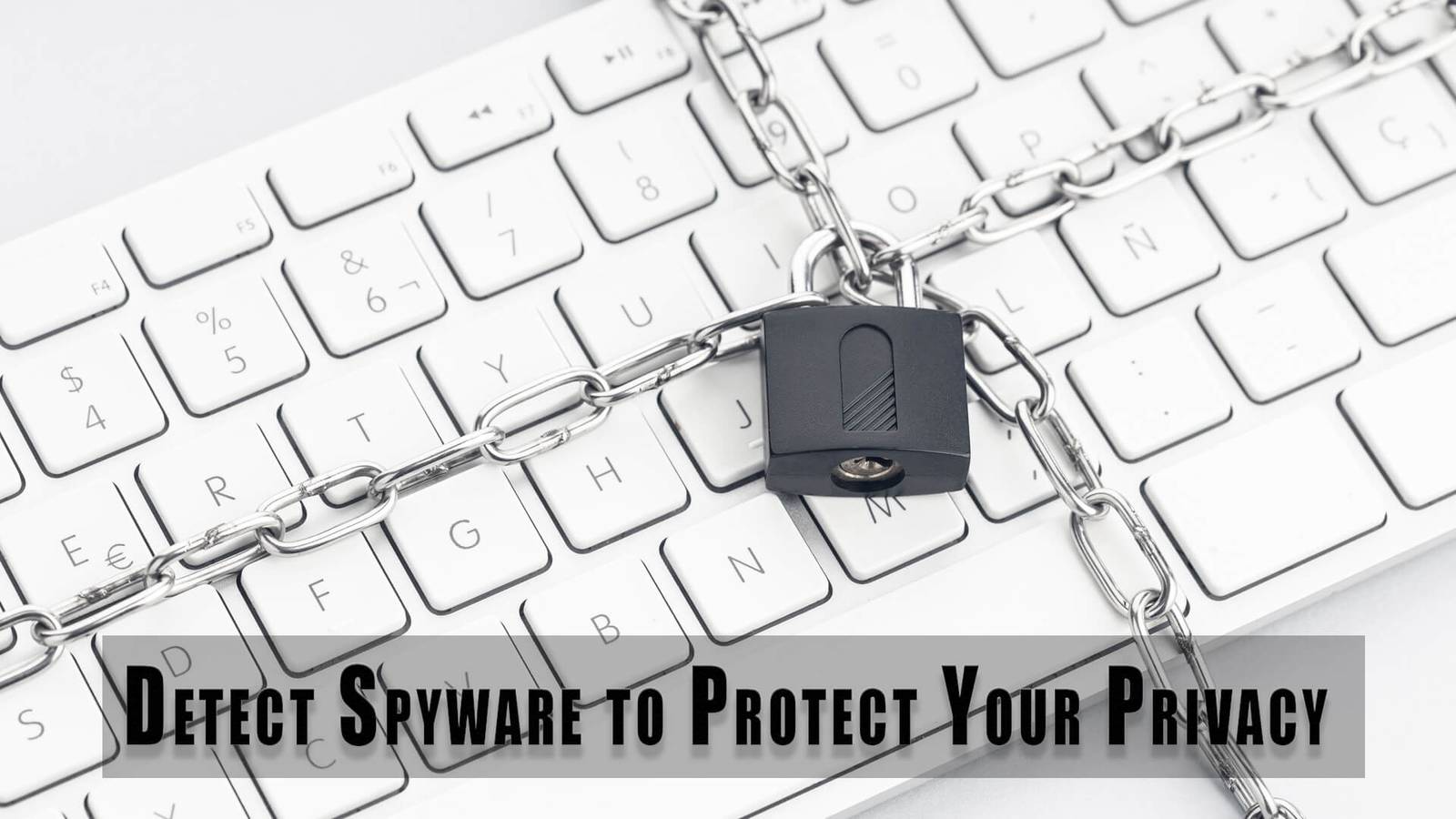Usually, the working of spyware is simple. It is attached to the OS of the device, and a memory-resident program is running in the background. Sometimes it is present in OS disguised as a vital OS file.
However, spyware can also be present in legitimate programs, and you have no idea about them. If you look carefully, you can find them mentioned in very small prints. Usually, spyware can be present in your OS via a phishing attack or dodgy downloads.
Can Spyware Happen Automatically in Your Devices?
No matter what, spyware can be installed on any device, including a laptop, PC, tablet, Android smartphone, or even on iPhones. Typically, the main targets of spyware programmers were computers. Now with the advancement of technology, spyware can take advantage of other device vulnerabilities like mobile phones, laptops, and tablets.
It is important for users to have an idea of different kinds of spyware, how you can detect them on your PC or mobile, and how to remove them from your device.
How Fast Can You Get the Spyware?
Before eradicating spyware from your device, it is important to detect them. Spyware can enter your device in several ways.
The first and most common type is spyware installed on your device with the software of the file that you download by yourself. They are disguised as useful and important software files like registry cleaner download manager and other program files.
Another type of spyware is when it arrives at your device with video game files. It may be in the form of real or useful programs or software needed to run the game. Disguise forms of spyware help them to work silently without even detecting them in your device.
More like, it could be installed on your PC or mobile deliberately by someone to keep track of you. To avoid this, don’t leave your device open to the interface or sit around. Use the screen look feature when you need to leave your device for some time.
However, Google, Apple, and other device manufacturing companies are working their best to prevent spyware from hitting their OS. But many programs and software have made it through Google Play Store, so every person can’t be too careful every time.
Explore Popular Variations of Spyware:
For monitoring of different information types, different spyware is used. For example, some spyware only tracks your internet browsing to collect data for advertising; some tracks your location and contact details. On the other hand, some spyware is used for criminal intents, such as stealing your network details and passwords.
Let’s explore different variations of spyware and how they work.
1. Key-loggers:
Key-loggers are used to track computer activity by using keyboard input reports. The tracked information may include visits to websites, browsing history and credentials, system passwords and login details, etc.
2. Mobile Spyware:
As the name indicates, this spyware tracks mobile activity. The stolen information may include your geographical locations, contacts, call logs, or even photos captured by a mobile camera.
3. Password Stealers:
Password stealer spyware is a type that is programmed to steal credentials or passwords from an infected device or PC. It can track system logins, network passwords, cookies, and web stored passwords on your device, etc. Cookies stolen by password stealers can be used to enable stealers to use websites by using your ID.
4. Video and Sound Spyware:
This spyware may record your conversation in the form of audio or video by using your mobile camera and microphone. It enables them to record your video or audio at any time, live to stream your camera on the web, and upload your photos without telling you.
5. Banking Trojans:
Banking Trojan is designed to modify web pages to take advantage of your browser’s security presence. They may fake websites, and users can carry on transactions on a fake site without knowing. It also steals logging credentials and keystrokes of users. Banking info Trojan scans your device to search passwords, bank account details, email addresses, email contacts, and usernames. Email contacts can be used by stealers to spam them with phishing emails. They can transmit transactions on other servers or modify transactions to their fake account instead of the intended account.
Tips to Avoid Getting Spyware in Any Phase of Your Life:
Here are a few tips that you can use to prevent the likelihood of spyware in your smartphones and other devices.
- Install and update anti-malware and antivirus protection on your laptop, smartphone, or other devices.
- Maintain your device software and operating systems updated. Run regular security checks, and scans can help to fix the weak points that hackers can use to steal information and data.
- Avoid clicking on unknown web addresses and links in your email unless you are sure where they go. Don’t install or download files from unauthorized networks. They might compromise your privacy.
- Don’t connect your device with local or unsecured Wi-Fi networks.
- Use mobile screen lock and set strong login passwords on your PC or laptop to avoid any unauthorized access.
- Control administrator access to your device and computers. If you run your device as an administrator connected with other device access, it will be easier for spyware to target your device.
- Don’t root your android phone or jailbreak your iPhone unless you need this functionality. It can open up your mobile phones to spyware attacks.
- Before installing any application, read carefully for the permissions that you grant them on your device, especially if they ask for the microphone, camera, or contact list access.
End Results of Computer and Phone Forensics:
Once you complete your device investigation, you will get a device forensic repost. You can use the forensic report as a proof to show to the court or police to prove that suspicious activity is recorded on your device, laptop, or personal computer.
A thorough forensic analysis of your mobile phone, computer, or any other device can determine the IP address of the hacker. With all proofs and reports, you can file a subpoena report in court that will help to determine the IP address owner and prosecute him.
Frequently Asked Questions (FAQs):
How can a person investigate spyware on mobile at home?
Check mobile settings that permit downloading or installing the apps that are not present in Google Play Store. If this setting is enabled, it indicates you have installed some potential spyware on your device accidentally.
How can a person find out whether spyware is installed or not?
- Go to device “Settings.”
- Search for “Apps and Notifications”
- Click on “See all Apps” in the settings
- Look for the App names with the terms “spy”, “stealth”, “track”, “Trojan”, “monitor” etc.
How can spyware compromise the privacy of a person?
Spyware running in the device background secretly allows hackers to access the data and information of the victim. They can track geographical locations and contact details. Some spyware even enables microphone and camera access that can be used to listen to or record audio or video conversations of a person.
What are the overall stats of spyware and malware cases in the world?
According to statistics, about 80% of users on the internet are affected by spyware. 93% of spyware is present on each computer or device of internet users, and around 89% of users are not aware of spyware existence on their devices.



